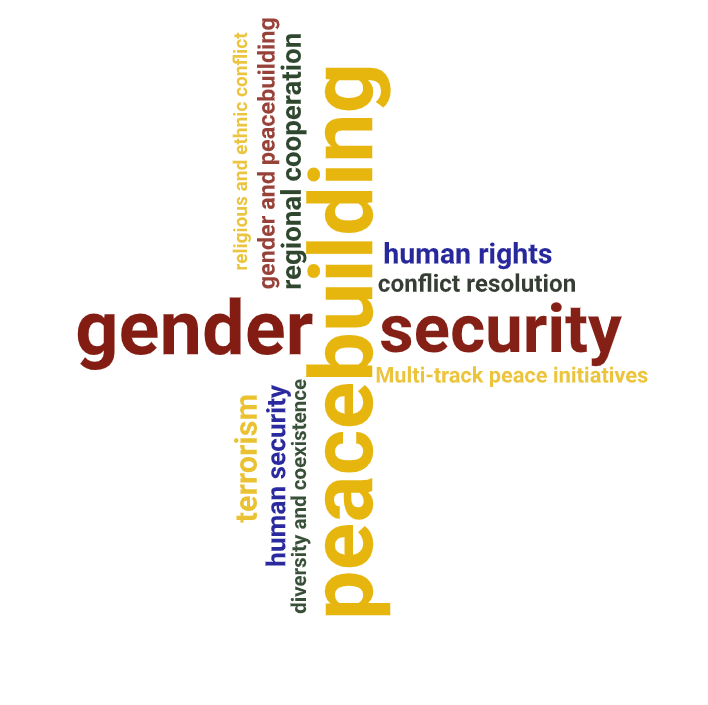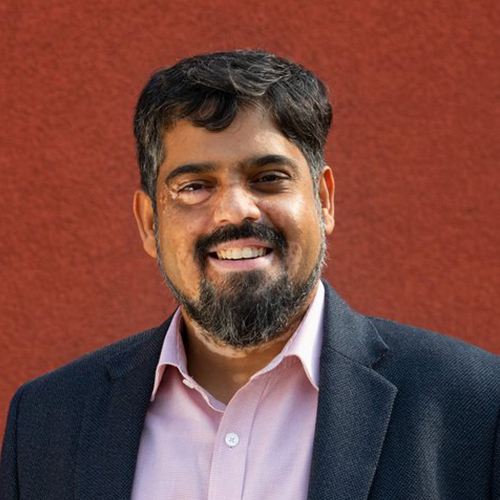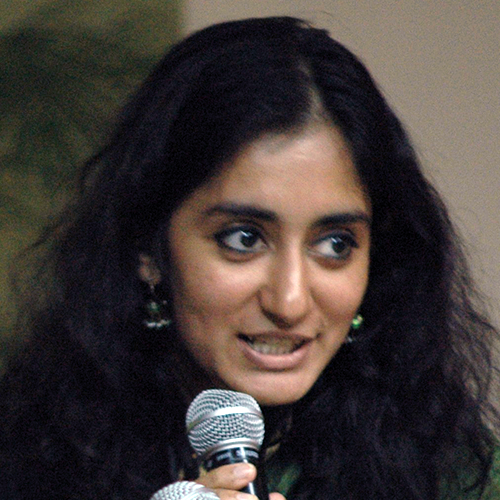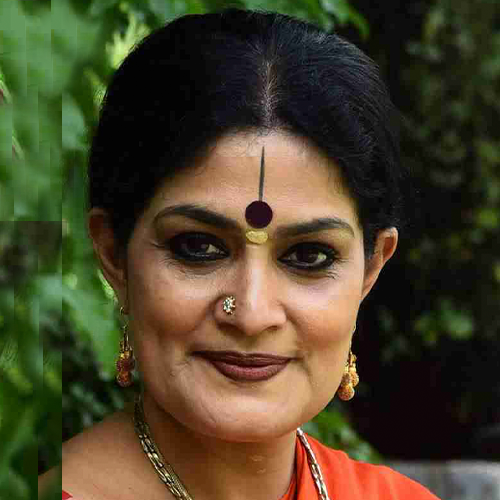
The Scholar of Peace Fellowships catalyse innovative, multi-disciplinary, theoretical engagement and research on issues that emerge at the intersection of the discourses on gender, security and conflict transformation.
Academic Research

“There are three elements of the WISCOMP experience I distinctly value and recollect.
First, its normative orientation to exploring serious alternatives to the mainstream discourse from the perspective of the marginalized…
Second, it gave me an opportunity to embark on field work to develop the real feel for the texture of politics. Third, WISCOMP became another receptive home for critical theorizing.”
– Professor Siddharth Mallavarapu
HOD, Department of International Relations and Governance Studies, Shiv Nadar University
Media Fellowships

“The WISCOMP award translated to reality my vision of media – and peace literate youth as agents of change. I have been able to take the first step in establishing a youth media bureau in South Asia…
The interaction with young peacebuilders from around the world was a valuable learning experience, one that has helped me to establish an enduring forum for discussion and education on peace and conflict issues.”
– Anupama Sekher
Director, Policy and Engagement, International Federation of Arts Councils and Culture Agencies
Special Projects

“Through this (Her Voice) performance, I transcended the usual parameters of classical dance from being merely decorative to becoming a powerful tool of communication. The performance altered the artistes in many ways. It led us into a collaboration that we had not thought was possible – classical dance meeting puppetry on equal terms. It also helped us to analyze why the traditional arts in India have always enshrined war and conflict as heroic and pro-masculine.”
– Padma Shri Geeta Chandran
Eminent Artist and Founder-President of Natya-Vriksha
Scholars of Peace
Giving Voices to the Valley: The Women of Kashmir
– Sudha Ramachandran, India
The Language of Conflict and Women in Assam
– Amita Joshi, India
Empowerment of Women: Answers from Tibet
– Alladi Jayasri, India
Women’s Voices from Kashmir
– Sonia Jabbar, India
Her Voice
– Geeta Chandran, India
Across the Experience: Sri Lankan and Naga Women in Dialogue
– Paula Banerjee, India
Women’s Uprising in Manipur – A Legacy Continued
– Bhabananda Takhellambam, India
Images of Muslim Women: A Study of the Representation of Muslim Women in the Indian Media (1985-2001)
– Sabina Kidwai, India
Armed Forces Special Powers Act and Its Impact on Violence Against Women in Nagaland
– Khatoli Khala, India
Impact of Violence on Media: Print Media in Kashmir
– Bashir Manzar, India
Language of Peace in a World of Violence: Strength of Women Survivors of Armed Conflict in Kashmir
– Manimala, India
Women Under-trials in Tihar Jail
– Smita Bharti, India
Gender Sensitive and Culture-specific Models of Alternative Dispute Resolution
– Chitra Balakrishnan
The Taming of a River: Gender, Displacement and Resistance in Anti-Dam Movements
– Bina Srinivasan, India
Soldiers, Prisoners, Princes and Prostitutes: Violence and Sexuality in the Iconography of the Nation
– Mangalika de Silva, Sri Lanka
Feminist litigation Patterns in Pakistan
– Jeff Redding, Pakistan
Representation of Post-Chagai Alternative Security Discourse in the Media
– Zafarullah Khan, Pakistan
In the Line of Fire: Women in the Armed Forces
– Capt. Deepanjali Bakshi, India
Women Cadres of the PWG: Conflict Mongers or Managers?
– Shruba Mukherjee, India
Refugees in Their Own Land : Coping and Sustenance Strategies of Women – Case Studies in Kerala
– Anita S., India
Afghan Women: The Burden Bearers of the Twenty Year War
– Dr. Mossarat Qadeem, Pakistan
Analysis of Education in Armed Conflict Situations: A Case Study of Nagaland
– Dolly Kikon, India
South Asian Women’s Internet Resources Alliance [SAWIRA]
– Aradhana Gupta, India
Taliban’s War on Women: Lived Experiences of Afghan Women in Transit
– Minakshi Das, India
Women Scientists’ Perception of the Nuclear Issue
– Dr. A. Subramaniyam Raju, India
Justice, Reconciliation and Constitution-Making: Making Sure the Future Constitution Works for Sri Lankan Women
– Kishali Pinto Jayawardene, Sri Lanka
Women-in-Exile: Tibetan Women’s Experiences as Refugees and their Role in Tibet’s Nonviolent Struggle for Survival and Freedom
– Eranpeni Ezung, India
Tibetan Question: Towards Conflict Resolution
– Jyoti Malhotra, India
The Troubled Waters of Karachi
– Ammara Durrani, Pakistan
Impact of Religious Extremism on Women in Pakistan
– Shireen Saleem, Pakistan
Youth Writing Peace: Alternative Media, Alternative Perspectives
– Anupama Sekher, India
Women’s Bodies and Communal Violence: Locating Sexual Violence in Hindutva and Patriarchy
– Bindu Nair, India
Refugee Women of the Afghan and Burmese Communities in Delhi
– Kamini Karlekar, India
Decentralized Governance in Schedule V Areas and Empowerment of Women: Resolution through Law
– Suparna Jain, India
Manipuri Women’s Role in Crisis Management during ‘Ceasefire Extension without Territorial Limits’
– Khelena Gurumayum, India
The Plight of Women Prisoners in Jail Custody
– Kanchan Gubba, India
Impact of Conflict on Marital Practices in Kashmir
– Sayed Fayaz Bukhari, India
International Relations Theory and Non-Traditional Approaches to Security
– Dr. Siddharth Mallavarapu, India
Guns and Books at Odds: The Impact of Militancy on Education in Jammu and Kashmir
– Aarti Tikkoo, India
Impact of Violence on Women’s Education in Kashmir
– Kavita Suri, India
Multi-track Peace Initiatives in India’s Northeast
– Seema Hussain, India
New Glory: Peace as Patriotism
– Dilip D’Souza, India
Engendering Persecution: Safeguarding South Asian Women’s Rights under International Refugee Law
– Oishik Sircar, India
Women and Children in Armed Conflict: The Maoist Conflict in Nepal
– Anjana Shakya, Nepal
Telling Tales: Negotiating Religious Identity in Classrooms
– Taran Nishat Khan, India
Women and War: A Study on Stranded Bihari Women and Girls in Bangladesh
– Zakia Haque, Bangladesh
Violent Spaces, Violated Persons: Rethinking the Camp and the Refugee in South Asia
– Dr. Ananya Vajpeyi, India
Between Two Worlds: Long-term Effects of Communal Violence on a Multi-religious, Marginalized Community (Pranamis): A Cultural Psychological Analysis
– Dr. Chavi Bhargava Sharma, India
Social Changes among Muslims of Ahmedabad since 1990
– Raheel Dhattiwala, India
Homemakers without the Men: Women-Headed Households in Violence-wracked Assam
– Wasbir Hussain, India
Women of Indian Origin Surviving and Thriving in Pakistan: An Unlikely Success Story?
– Dr. Rinku Dutta and Vanita Sharma, India
Healing Through Dialogues’ – Theatre of the Oppressed and Beyond
– Jaimala Iyer, India
Storytelling and Puppetry as Tools of Conflict Resolution: Experiences from Kashmir
– Anurupa Roy, India
Transitional Justice for Ex-women Combatants
– Nirekha de Silva, Sri Lanka
Predicaments and Challenges of the Buffer Zone: Women in Conflict Ridden Manipur
– Dr. Bimol Akoijam, India
Earth and Stone, Debris and Ash: Public Space and Violence in the Sri Lankan Conflict
– Dilrukshi Fonseka, Sri Lanka
Pilot Case Study on Women of Conflict Affected Areas of Nepal: Their Present and Future
– Babita Basnet, Nepal
Kashmir: Layers of Nationality, Identity and Ethnicity
– Alpana Kishore, India
Memory and Migration: Bhutanese Refugee Women and Oral Histories of Self and Nation
– Malavika Vartak, India
Creating “Robin Hoods”: Popular Print Media as Mouthpiece of Insurgent Organisations: Reading Through the Discourse of Assamese Newspapers in the Early Period of Insurgency in Assam.
– Uddipan Dutta, India
Women’s Role in Micro-Disarmament in India’s Northeast
– Binalakshmi Nepram, India
Decisions over Differences: Understanding Dispute Resolution in Shared Sacred Spaces
– Geetanjali Srikantan, India
Boy and the Soldier
– Sehjo Singh and Meera Khanna, India
Exploring the Reality across the Line of Control
– Luv Puri, India
Women Can’t Swim: Tsunami, Survival and the Gender Dimension
– S. Gautham, India
Divided Families in the Kargil Region: Impact on Women
– Seema Shekhawat and Debidatta Mahapatra, India
Heroes and Victims: Exploring Disability and Human Security in Sri Lanka’s Conflict and Its Impact on Social and Economic Opportunities for the Disabled.
– Sarala Emmanuel and Radhika Hettiarachchi, Sri Lanka
The Political Representation of Women in Afghanistan
– Swapna Kona, India
Regional Cooperation against Human Trafficking
– Sarasu Thomas, India
Feminization of Communalism in Kerala in the Context of Communal Violence in Maradu
– K.K. Shahina, India
